Deaths
which occurred on a 22 March:
2004 Two
Iraqi civilians and a suicide car bomber, near Balad, Iraq. 25
Iraqi civilians and 8 members of the US-trained Iraqi Civil Defense Corps
are wounded.
2004 Seppo Haapanen, and Jorma Toronen,
Finnish businessmen shot near a highway underpass in west Baghdad, Iraq,
as they were being driven to the Ministry of Electricity to make business
contacts. Their Iraqi driver is unhurt. Haapanen, an employee of Entso,
a Finnish company that specializes in electricity and power networks; and
Toronen, of Air-Ix, which builds railways, were part of a nine-person Finnish
technological delegation visiting Baghdad.
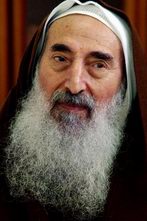 2004
A Palestinian man, 34, in Hebron, West Bank, shot by Israeli troops
as he is throwing stones while participating in a demonstration protesting
the assassination of sheik Yassin. 2004
A Palestinian man, 34, in Hebron, West Bank, shot by Israeli troops
as he is throwing stones while participating in a demonstration protesting
the assassination of sheik Yassin.
2004 Three Palestinians,
including a 13-year-old boy, as Israeli soldiers at a roadblock,
near the Neveh Dekalim enclave settlement, west of the Khan Yunis refugee
camp in the Gaza Strip, fire at hundreds of demonstrators, mostly schoolchildren,
protesting the assassination of sheik Yassin, some of them throwing stones.
2004 Mohammed Abu Khalimi, 22, reporter for Al Najah
University radio, shot by Israeli troops entering the Balata refugee camp
in Nablus, West Bank, just after he broadcast a report about them. He was
standing near a group youths protesting the assassination of sheik Yassin,
some of them throwing stones. The Israelis claim that Abu Khalimi was a
Hamas militant and was firing at them. Palestinians say that he was an unarmed
non-violent Hamas supporter.
2004 sheik Ahmed Yassin, 68, and
9 others, including his son-in-law and some bodyguards, at 05:00
(03:00 UT) as Israeli helicopters fire three missiles at the car in which
they are leaving a mosque near his house in Gaza City. Two of Yassin's sons
and 15 other persons are wounded. Wheelchair-bound, quadriplegic (since
age 12) Yassin [11 Jan 2004 photo >] was the spiritual
leader of Hamas (an
acronym for Harakat al-Muqawamah al-Islamiyya = Islamic Resistance Movement).
In 1983, Yassin was arrested by the Israeli occupation forces in Gaza and
was sentenced to 13 years in prison for forming (in 1979) the underground
organization Majd al-Mujahidin and possessing weapons. He was released two
years later as part of a prisoner swap. In 1987, he founded Hamas; he was
at the time the Gaza-based leader of the Muslim Brotherhood. He was again
arrested and sentenced to 40 years in prison in 1989, this time charged
with inciting violence and ordering the killing of an Israeli soldier. But
Israel released him in 1997 as a goodwill gesture to Jordan's King Hussein
after a failed Israeli attempt to assassinate Hamas leader Khaled Mashal
in Amman. On 06 September 2003, an Israeli F-16 fighter jet fired several
missiles at a home in Gaza city where Yassin and other Hamas leaders were
meeting, but Yassin escaped with just a small wound to his hand. Anticipating
but also aggravating Palestinian angry vengefulness, Israel closes to Palestinians
all border crossings and increases its heavy-handed interdiction of movement
within the Palestinian territory. The regime of criminal Israeli Prime Minister
Sharon (mis)calculates (against the advice of Shin Bet chief Avi Dichter)
that the beheading of Hamas is well worth the increased risk of terrorism.
Yassin had said in an interview: “If I am killed there will arise
a thousand like me.”
2004 Bassem Kadih, 38, and Sanaa
Kadih, 33, his wife, by an explosion as they flee from Israeli
troops who shoot at them, in Abassan, near Khan Younis, Gaza Strip, which
the Israelis attacked at 03:00 (01:00 UT) with tanks, armored vehicles and
bulldozers. The Israelis say that the explosion may have been that of an
explosive belt that Bassem Kadih, a Hamas fighter, was most likely wearing.
The couple's seven children lose not only their parents, but also their
home which the Israelis destroy, as well as a metal workshop in the backyard
which the Israelis say was used to make weapons.
2004 Abdel
Rahman al-Dardisi, 25, Thaer Kadih, 23, and Rafet Abu-Toameh, 20,
Palestinians shot before 03:00 in the Gaza Strip near the Kissufim crossing
point at the Israeli border by Israeli troops on their way to attack the
town Abassan. Al-Dardisi and Kadih were armed Hamas fighters. Abu-Toameh
was an innocent woman bystander.
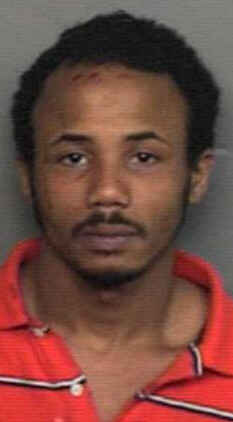 2003
Henry Robinson, 56, by 16 shots from two rifles by his son, Adrian
O'Neill Robinson, 25 [< photo], who had accused him of
sexually assaulting him. The murder takes place in their home in Hamilton,
Georgia. Then Adrian walks 5 km to a church and breaks into the mobile home
of two Sisters of the Franciscan Missionaries of Mary, Lucie Kristofik,
72, and Philomena Fogarty, 64, who are not there. When they return on 23
March, he takes $900, binds and gags them, puts them in their car and drives
to Norfolk, Virginia, to a hotel, where, on 25 March he leaves Sister Lucie,
unharmed, while he takes Sister Philomena, kills her, cuts off her head,
hands, and feet, and dumps her body in an office parking lot in Virginia
Beach. Police find the car early on 26 March, but Adrian flees on foot and
is arrested 22 hours later after a Burger King worker recognizes him. Adrian
Robinson was wanted in Norfolk on a 1998 forgery charge. 2003
Henry Robinson, 56, by 16 shots from two rifles by his son, Adrian
O'Neill Robinson, 25 [< photo], who had accused him of
sexually assaulting him. The murder takes place in their home in Hamilton,
Georgia. Then Adrian walks 5 km to a church and breaks into the mobile home
of two Sisters of the Franciscan Missionaries of Mary, Lucie Kristofik,
72, and Philomena Fogarty, 64, who are not there. When they return on 23
March, he takes $900, binds and gags them, puts them in their car and drives
to Norfolk, Virginia, to a hotel, where, on 25 March he leaves Sister Lucie,
unharmed, while he takes Sister Philomena, kills her, cuts off her head,
hands, and feet, and dumps her body in an office parking lot in Virginia
Beach. Police find the car early on 26 March, but Adrian flees on foot and
is arrested 22 hours later after a Burger King worker recognizes him. Adrian
Robinson was wanted in Norfolk on a 1998 forgery charge.
2003
Lt. Thomas Mullen Adams, USN, 27, and British Lieutenants
Philip Green, Marc Lawrence, Antony King, Philip West, Andrew Wilson,
and James Williams, in the collision and crash
of two British Navy helicopters over the northern Persian Gulf, near Iraq.
2003 US Army Reserve Spc. Brandon S. Tobler,
19, in a vehicle accident ; and Marine Lance Cpl. Eric J. Orlowski,
26, in a machine gun accident; die in Iraq during the US-lead attack.
2003 Nayef Shedakh, a senior member of the Iraqi Ba'ath
Party, in fighting between Iraqi and US-led troops near Najaf, Iraq.
2003 At least 28 of the 87 miners working underground
in the Mengnanzhuang Coal Mine in Xiaoyi city, Shanxi province, China, when
there is a gas explosion.
2001
Praskovia Valiskerov, 82, hammered by her husband, Haim, 90.
^top^
The
murder takes place in the Neve Oranim nursing home in Gedera, Israel.
Haim said afterwards that he was angry over her failure to take care
of him "like a woman should." The elderly couple had immigrated from
the former Soviet Union seven years earlier, and according to the
nursing home staff, seemed to have a good relationship. Yesterday,
however, a quarrel broke out when Haim charged that Praskovia was
not feeding him properly. He grabbed a hammer and beat her to death,
then fled the site. Nursing home employees noticed the bloodstains
in the doorway, and upon finding Praskovia dead, searched for her
husband. They found him a few hundred meters away, where he had collapsed,
and brought him to the police. He has confessed to the murder and
reenacted it. |
2001
Olga Korol, 39, stabbed by her ex-boyfriend, Shliko Hundashvili, 52.
^top^
The murder took place at around 05:30, in Ashdod, Israel, in full
view of a neighbor. Eliyahu Cohen, 70, said he watched the entire
incident from his balcony, but was unable to summon the police because
he does not have a telephone. Eventually, his screams roused other
neighbors, and they called the police. When the police arrived, Korol,
who had been stabbed in the chest, was lying in the parking lot of
her apartment building, still alive. She died of her wounds in hospital.
Korol's murder aroused a public storm because of the feeling that
it could have been prevented: Korol, a divorcée, had complained
to the police about her ex-boyfriend in the past, but they were not
able to locate him. When she announced that she was leaving him, on
01 February 2001, he beat her and warned her not to leave, after which
Korol complained to the police. She withdrew the complaint 4 days
later, saying her walkout had been accomplished. Then, on 08 March,
Hundashvili called and asked to meet her. When she refused to let
him into her apartment, he beat her again. She then filed another
complaint with the police, and they said they have been looking for
him since. Yesterday, the police found Hundashvili in the vicinity
of Korol's apartment shortly after the murder. They arrested him,
and he confessed and reenacted the murder. At his remand, Hundashvili
claimed he had not intended to kill her. The knife was a joke, he
said, but Korol became frightened and tried to take it away, and in
the course of a struggle, the knife entered her chest. |
1994 Walter Lantz, dibujante estadounidense, creador del
"Pájaro Loco".
1987 Guinand,
mathematician.
1984 El Diario de Barcelona,
decano de la prensa diaria española, deja de editarse.
1978
Jesús Haddad, director general de prisiones de España, asesinado
en Madrid por tres jóvenes terroristas de los GRAPO (Grupos de Resistencia
Antifascista Primero de Octubre).
1978 Karl Wallenda,
73, patriarch of "The Flying Wallendas" high-wire act, by fall while walking
on a cable strung between two hotels in San Juan, Puerto Rico.
1973 Hilda
Geiringer, mathematician.
1934 Some 1500 in
fire which destroys Hakodate, Japan. 1000 are injured.
1926 Neuberg,
mathematician.
1923 Benjamin “Williams Leader”,
British painter born on 12 March 1831. — MORE
ON LEADER AT ART “4” MARCH
with links to images.
1918 Spencer Evans, Black, lynched
in Taliaferro County, Georgia, accused of the rape of a White woman.
1912 Elizabeth Adela (Amstrong, Stanhope, Alexander) Forbes,
British artist born on 29 December 1859. — more
with links to images.
1890 Sim Martin, Black, lynched
in Johnson County, Georgia, accused of the murder of a White.
1878
George Clarkson Stanfield, British artist born on 01 May 1828.
1840 Bobillier,
mathematician.
with Com James Barron, near Washington, DC
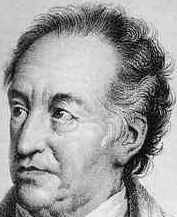 1832 1832
 Johann
Wolfgang von Goethe,
in Weimar, Germany. Johann
Wolfgang von Goethe,
in Weimar, Germany.
Born on 28
August 1749, Goethe was a poet, playwright, novelist, and social philosopher,
the greatest figure of the German Romantic period, best known for
Faust.
— C'est à Francfort sur le Main que nait l'un des plus
grands poètes allemands. Il fut aussi géologe, botaniste et
naturaliste. Il découvrit l'os intermaxillaire. Parlant sept langues,
musicien, Il a excercé une grande influence sur la littérature européenne.
Son oeuvre capitale, Faust, est mondialement connue.
— 1787 Portrait
of Goethe by Johann
Heinrich Wilhelm Tischbein. — 1823 Portrait
of Goethe by Orest
Kiprensky.
GOETHE ONLINE
— Faust.
Der Tragödie zweiter Teil in fünf Akten — Hermann
und Dorothea — Das
Märchen (1795) — Novelle
(1826)
(in English translations):
— Egmont
_ Egmont
—
Faust — Hermann
and Dorothea _ Hermann
and Dorothea —
The Poems of Goethe —
The Sorrows of Young Werther — Das
Märchen – A Fairy Tale (1795) — Novella
(1826) |
1820
Stephen Decatur, US naval hero, in a duel.
US
Navy officer Stephen Decatur, 41, hero of the Barbary Wars, is mortally
wounded in a duel with disgraced Navy Commodore James Barron at Bladensburg,
Maryland. Although once friends, Decatur sat on the court-martial
that suspended Barron from the Navy for five years in 1808 and later
opposed his reinstatement, leading to a fatal quarrel between the
two men.
Born in Maryland in
1779, Stephen Decatur was reared in the traditions of the sea and
in 1789 joined the United States Navy as a midshipman aboard the new
frigate, United States. That year, he saw action in the so-called
quasi-war with France and in 1799 was commissioned a lieutenant. Five
years later, during the Tripolitan War, he became the most lauded
US naval hero since John Paul Jones.
In 1801, President Thomas Jefferson ordered US Navy vessels to the
Mediterranean Sea in protest of continuing raids against US ships
by pirates from the Barbary states--Morocco, Algeria, Tunis, and Tripolitania.
Sustained action began in June 1803, and in October the US frigate
Philadelphia ran aground near Tripoli and was captured by
Tripolitan gunboats. The Americans feared that the well-constructed
warship would be used as a model for building future Tripolitan frigates,
and on 16 February 1804, Stephen Decatur led a daring expedition into
Tripoli harbor to destroy the captured vessel.
After disguising himself and his men as Maltese sailors, Decatur's
force stole into Tripoli harbor and boarded the Philadelphia,
which was guarded by Tripolitans quickly overpowered by the US troops.
After setting fire to the frigate, Decatur and his men escaped without
the loss of a single American. The Philadelphia subsequently
exploded when its gunpowder reserve was lit by the spreading fire.
Famed British Admiral Horatio Nelson hailed the exploit as the "most
bold and daring act of the age," and Decatur was promoted to captain.
In August 1804, Decatur returned to Tripoli Harbor as part of a larger
US offensive and emerged as a hero again during the Battle of the
Gunboats, which saw hand-to-hand combat between the Americans and
the Tripolitans.
In 1807, Commodore
James Barron, who fought alongside Decatur in the Tripolitan War,
aroused considerable controversy when he failed to resist a British
attack on his flagship, the Chesapeake. Decatur sat on the court-martial
that passed a verdict expelling Barron from the Navy for five years.
This began the dispute between Decatur and Barron that would end 13
years later on the dueling grounds in Maryland.
In the War of 1812, Decatur distinguished himself again when, as commander
of the USS United States, he captured the British ship of
war Macedonian off the Madeira Islands. Barron, meanwhile, was overseas
when his Navy expulsion ended in 1813 and did not return to the United
States to fight in the ongoing war with England. This led to fresh
criticism of Barron from Decatur, who later used his influence to
prevent Barron's reinstatement in the Navy.
In June 1815, Decatur returned to the Mediterranean to lead US forces
in the Algerian War, the second Barbary conflict. By December, Decatur
forced the dey (military ruler) of Algiers to sign a peace treaty
that ended American tribute to Algeria. Upon his return to the United
States, he was honored at a banquet in which he made a very famous
toast: "Our country! In her intercourse with foreign nations may she
always be in the right; but our country, right or wrong!"
Appointed to the Navy Board of Commissioners, Decatur arrived in Washington
in 1816, where he became a prominent citizen and lived a satisfying
life politically, economically, and socially. In 1818, however, dark
clouds began to gather when he vocally opposed Barron's reinstatement
into the Navy. The already strained relations between the two men
deteriorated, and in March 1822 Decatur agreed to Barron's request
to meet for a duel. Dueling, though generally frowned on, was still
acceptable among Navy men.
On
22 March, at Bladensburg in Maryland, Decatur and Barron lift their
guns, fire, and each man hits his target. Decatur would die several
hours later in Washington, and the US mourn the loss of the great
naval hero. Barron recovered from his wounds and was reinstated into
the Navy in 1821 with diminished rank. |
1762 Maximilien Joseph Schinagl, German artist born on
28 April 1697.
1622:
347 Jamestown settlers massacred
^top^
In
the first major massacre of European colonists by Native Americans,
Algonquian Indians led by Opechancanough, chief of the Pamunkey, slaughter
347 English settlers around Jamestown, Virginia--nearly a third of
the settlement’s total population.
On May 13, 1607, approximately one hundred colonists settled along
the James River in Virginia to found Jamestown, the first permanent
English settlement in America. Within two weeks, the first warriors
from the local Algonquian Indian confederacy attacked the settlement,
but were repulsed by the armed settlers. In December of the same year,
Captain John Smith, an English adventurer, and two colonists were
captured by Algonquians while searching for provisions in the Virginia
wilderness. His companions were killed, but he was spared, according
to Smith, because of the intercession of Pocahontas, Chief Powhatan’s
daughter. Over the next two years, disease, starvation, and more Native
American attacks wiped out most of the colony, but the London Company
continually sent more settlers and supplies.
The severe winter of 1609 to 1610, which the colonists referred to
as the "starving time," killed most of the Jamestown colonists, leading
the survivors to plan a return to England in the spring. However,
on 10 June, Thomas West De La Warr, the newly appointed governor of
Virginia, arrived with supplies and convinced the settlers to remain
at Jamestown. In 1612, John Rolfe cultivated the first tobacco at
Jamestown, introducing a successful source of livelihood, and, on
April 5, 1614, he married Pocahontas, thus assuring a temporary peace
with Chief Powhatan and the Algonquians.
However, in 1618, Powhatan died, and Opechancanough, chief of the
Pamunkey, became the key leader in the Algonquian Confederacy. On
22 March 1622, Opechancanough organizes an attack that nearly wipes
out the settlements surrounding Jamestown, although the heavily fortified
town is saved. The English would engage in violent reprisals against
the Algonquians, but there was no further large-scale fighting until
1644, when Opechancanough led his last uprising, and was captured
and executed at Jamestown. In 1646, the Algonquian Confederacy agreed
to give up much of its territory, and, beginning in 1665, its chiefs
were appointed by the governor of Virginia. |
1369 Pedro I, rey de Castilla y León, matado por su hermano
Enrique de Trastámara (futuro Enrique II), ayudado por el guerrero francés
Bertrand du Guesclin.
1349 Townspeople of Fulda
Germany massacre Jews (blamed for black death)
1282 San Bienvenido,
religioso italiano.
0337 Constantine, 47, Emperor
of Rome.
|
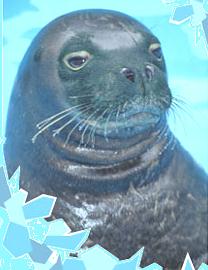
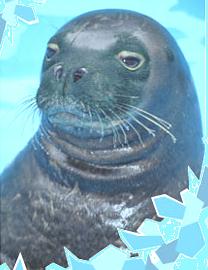 <<
Mar 21| HISTORY “4” “2”DAY
|Mar 23 >>
<<
Mar 21| HISTORY “4” “2”DAY
|Mar 23 >>
 1961
1961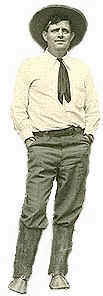
 2004
A Palestinian man, 34, in Hebron, West Bank, shot by Israeli troops
as he is throwing stones while participating in a demonstration protesting
the assassination of sheik Yassin.
2004
A Palestinian man, 34, in Hebron, West Bank, shot by Israeli troops
as he is throwing stones while participating in a demonstration protesting
the assassination of sheik Yassin. 2003
Henry Robinson, 56, by 16 shots from two rifles by his son, Adrian
O'Neill Robinson, 25 [< photo], who had accused him of
sexually assaulting him. The murder takes place in their home in Hamilton,
Georgia. Then Adrian walks 5 km to a church and breaks into the mobile home
of two Sisters of the Franciscan Missionaries of Mary, Lucie Kristofik,
72, and Philomena Fogarty, 64, who are not there. When they return on 23
March, he takes $900, binds and gags them, puts them in their car and drives
to Norfolk, Virginia, to a hotel, where, on 25 March he leaves Sister Lucie,
unharmed, while he takes Sister Philomena, kills her, cuts off her head,
hands, and feet, and dumps her body in an office parking lot in Virginia
Beach. Police find the car early on 26 March, but Adrian flees on foot and
is arrested 22 hours later after a Burger King worker recognizes him. Adrian
Robinson was wanted in Norfolk on a 1998 forgery charge.
2003
Henry Robinson, 56, by 16 shots from two rifles by his son, Adrian
O'Neill Robinson, 25 [< photo], who had accused him of
sexually assaulting him. The murder takes place in their home in Hamilton,
Georgia. Then Adrian walks 5 km to a church and breaks into the mobile home
of two Sisters of the Franciscan Missionaries of Mary, Lucie Kristofik,
72, and Philomena Fogarty, 64, who are not there. When they return on 23
March, he takes $900, binds and gags them, puts them in their car and drives
to Norfolk, Virginia, to a hotel, where, on 25 March he leaves Sister Lucie,
unharmed, while he takes Sister Philomena, kills her, cuts off her head,
hands, and feet, and dumps her body in an office parking lot in Virginia
Beach. Police find the car early on 26 March, but Adrian flees on foot and
is arrested 22 hours later after a Burger King worker recognizes him. Adrian
Robinson was wanted in Norfolk on a 1998 forgery charge.
